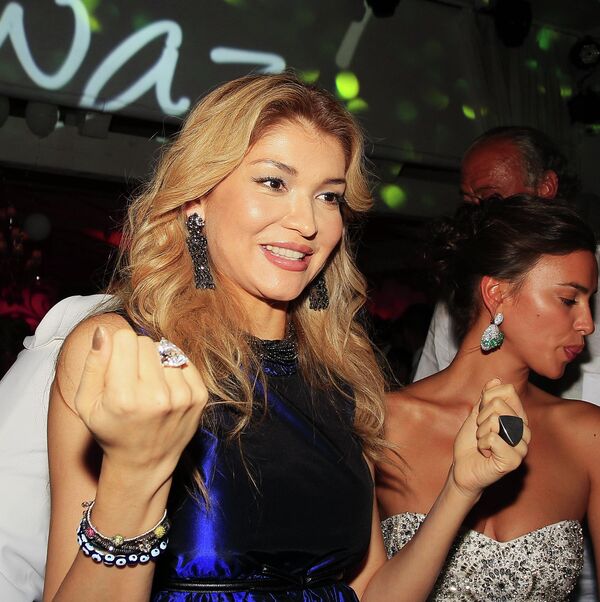MOSCOW, August 15 (RIA Novosti) – It seems the streets of Uzbekistan’s capital are paved with gold – or at least money, and at least when the daughter of the former Soviet republic's autocratic president is taking a stroll.
“I was walking along a simple road in Tashkent … found 200 dollars … somebody dropped two beautifully folded banknotes,” Gulnara Karimova wrote in a message posted on the microblogging site Twitter on Thursday.
“I pity the one who lost” the money, she added in another tweet and posted a link to a picture of the banknotes.
What she found amounts to two-thirds of what the average Uzbek earns each month – according to her father, President Islam Karimov, who has run the country since before the 1991 Soviet collapse, and who claims the average salary in the resource-rich former Soviet nation exceeded $300 back in 2008.
But international experts think that the real number is below half that amount. The World Bank said last year that Uzbekistan’s per capita gross national income (GNI) is just $1,720 a year – or $143 a month.
The 41-year-old Karimova, a Harvard graduate and divorced mother of two, has allegedly created a business empire that includes a telecoms company, cement factories, gas stations, night clubs and several media outlets, according to media reports.
In March, The Financial Times said that Karimova “built up sizeable holdings in Uzbekistan’s telecoms industry and came to own luxury properties.” In 2010, German news magazine Der Spiegel estimated Karimova’s wealth at $570 million.
A 2005 US diplomatic cable published by the WikiLeaks website described her as "the single most hated person in the country" and a “robber baron.”
“The discussion of the honest, hardworking Gulnora, looking out for the best interests of her country, likely irks the many business people who have been crushed by Karimova and her greed as well as the general public, who view her as something of a robber baron,” said the cable classified by the then-US ambassador to Uzbekistan Jon R. Purnell.
Karimova has also designed jewelry and clothes, recorded two pop albums and published a book of poetry.
Her show at New York Fashion Week in 2011 was canceled after protests by the Uzbek People's Movement, a small group of expatriate Uzbeks, and the American Federation of Teachers, who accused her father’s government of forcing millions of Uzbek schoolchildren to pick cotton each fall for weeks instead of attending classes.
Last Soviet leader Mikhail Gorbachev appointed Karimov as Uzbekistan’s Communist boss in 1989. Karimov was elected president after the 1991 dissolution of the Soviet Union and has since been re-elected twice in elections that were judged unfair by international observers.
Critics say his rule has been marked by a widening crackdown on opposition and independent media and on peaceful Muslims who practiced their faith outside government-approved mosques and were accused of terrorism and extremism.
Meanwhile, Karimov’s government has kept the economy under tight control and has been accused of harassing foreign investors such as Oxus Gold and Newmont Mining.
The West turned its back on Karimov after his troops opened fire in 2005 on thousands of mostly peaceful protesters in the eastern city of Andijan who were urging the authorities to release 23 local businessmen awaiting trial on what the protesters called trumped-up charges.
Uzbek authorities said 187 people were killed, mostly by armed protesters. Survivors and human rights groups said at least 750 were gunned down by government troops.
Updated on August 17, adding background and references throughout.


